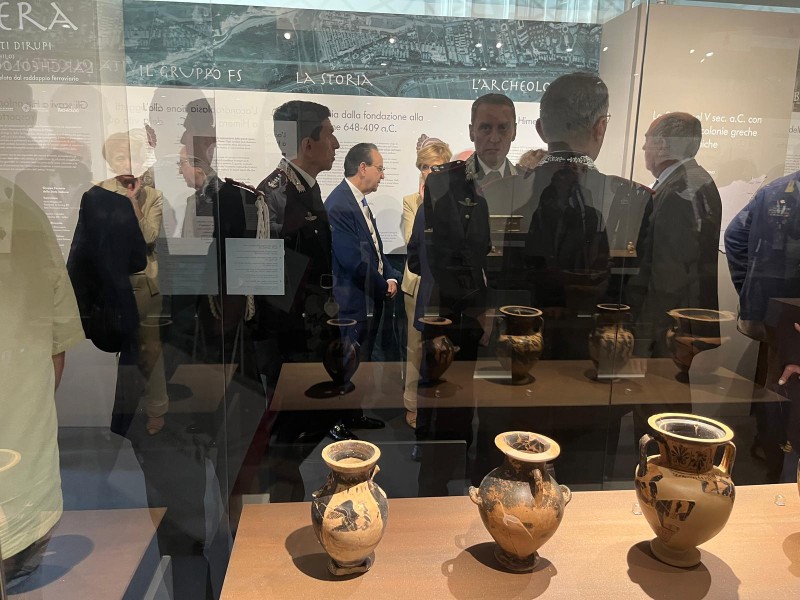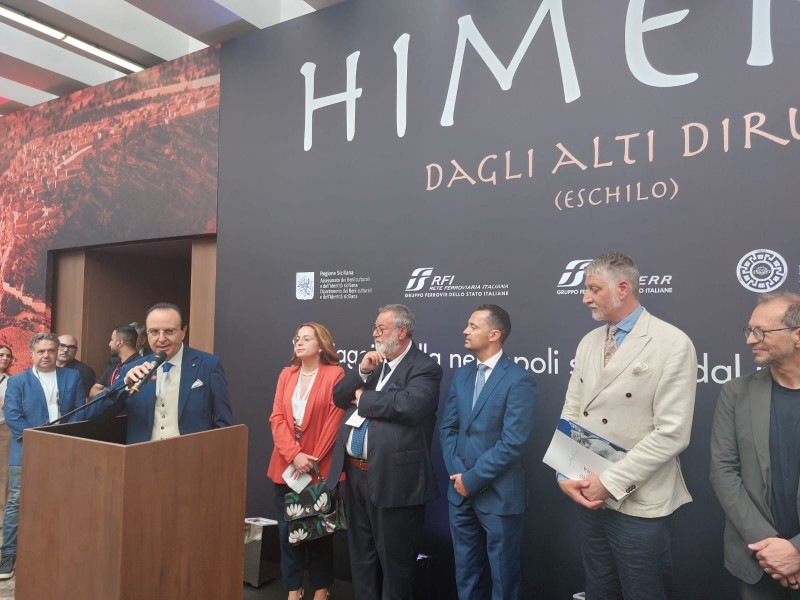Himera, archaeological finds emerging from a railway construction site
Finds unearthed during the project for doubling the Palermo-Messina rail line
The necropolis of Himera, a strategic city founded in ancient Sicily by Greek colonists, in 648 BCE, has been brought to light between Fiumetorto and Ogliastrillo, during construction work doubling and upgrading the Palermo-Messina rail line.
This amazing discovery was made thanks to Italferr, which, in partnership with Rete Ferroviaria Italiana, carried out the Site Management and Supervision of archaeological activities at the site between 2008 and 2011.
The solutions adopted involved rerouting the line, which interfered with the remains of the ancient city, and adopting design changes to minimise the impact of the infrastructure on the necropolis. This made it possible to carry out a thorough exploration of the archaeological site and to preserve the finds.
A special exhibition on the archaeological discovery, called “Himera and its high cliffs. A journey through the necropolis unearthed by a railway line”, opened yesterday, 10 June, at the station of Palermo Centrale, in the presence of the Minister of Culture, Alessandro Giuli, the Head of the Department for Cultural Heritage and Sicilian Identity of the Region of Sicily, Francesco Paolo Scarpinato, the Head of the Department for Urban Planning and Strategic Territorial and Coastal Planning of the Municipality of Palermo, Maurizio Carta, the President of RFI, Paola Firmi, the CEO of Italferr, Dario Lo Bosco, and the Chief Investment Officer of RFI, Lucio Menta.

Until next November 10, in the Royal Hall and the adjacent room, it will be possible to view a selection of over 20,000 archaeological artifacts unearthed from the necropolis and delivered to the Superintendency for Cultural and Environmental Heritage of Palermo.
The area has yielded an exceptional heritage, with the discovery of over 9,500 tombs in the western necropolis. These funerary findings, characterized by a wide variety of burial types and grave goods, now represent an extraordinary source for studying the social, economic, and demographic dynamics of the Greek colony.
This previously unseen cultural heritage has fostered a virtuous dialogue between modern infrastructure and the enhancement of historical roots. It marks an important milestone for the FS Group, which is consistently committed to adopting preventive archaeology to ensure that the construction of new railway lines proceeds sustainably, without compromising the historical richness of the territories they cross.


